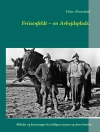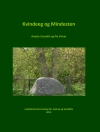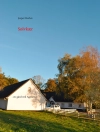Der urbane Wandel seit 1990 macht Warschau zu einer der dynamischsten Metropolen Europas. Die Autor Innen nehmen Architektur und Städtebau, soziale Praktiken sowie lokale Wissensbestände und urbane Vorstellungswelten in den Blick. Die Analyse von Veränderungen und Kontinuitäten veranschaulicht die Neuordnung von Stadt und Stadtgesellschaft im Postsozialismus und Neoliberalismus.
Warsaw is an accelerated city, one of the most dynamically developing cities in Europe. But Warsaw is also a junction of different modes of urbanism: European, Tzarist, modernist, socialist and – in the last two decades – aggressively neoliberal. The book analyzes the interplay of these urban forms under intense urban change after 1990. The interdisciplinary perspective allows the tracking of continuities and breaks, showing how social and material transformations are intertwined, how conflicts emerge and how Warsaw is at the heart of the changing geographies of centrality and marginality in contemporary Poland. The volume departs from typical narratives of the post-socialist city by showing and discussing how Warsaw’s transformation can be read in the terms of global urban change.
表中的内容
Contents
Acknowledgements7
Introduction: Chasing Warsaw
Monika Grubbauer and Joanna Kusiak9
Theses on Post-Socialist Urban Transformation
Karl Schlögel25
I: Post-Socialism and the Dynamics of Urban Change
Toward a More Comprehensive Notion of Urban Change:
Linking Post-Socialist Urbanism and Urban Theory
Monika Grubbauer35
Comeback or Revolution of the Cities?
Regina Bittner61
II: Urban Form and Representation
Continuity of Change vs. Change of Continuity:
A Diagnosis and Evaluation of Warsaw’s Urban Transformation
Magdalena Staniszkis81
Gating Warsaw: Enclosed Housing Estates
and the Aesthetics of Luxury
Jacek G?decki109
The Liminal Cityscape: Post-Communist Warsaw as
Collective Representation
Dominik Bartma?ski133
III: Social Practices and the City
Sanitation and Disorder in Warsaw’s Urban Space:
Cultural Determinants of Waste Management
W?odzimierz Karol Pessel163
Visible and Invisible Ethnic Others in Warsaw:
Spaces of Encounter and Places of Exclusion
Aneta Piekut189
Kiosks with Vodka and Democracy: Civic Cafés between
New Urban Movements and Old Social Divisions
Joanna Kusiak and Wojciech Kacperski213
IV: Metropolitanism
The Laboratory of Polish Postmodernity:
An Ethnographic Report from the Stadium-Bazaar
Roch Sulima241
Space, Class and the Geography of Poland’s
Champagne (Post-)Socialism
Kacper Pob?ocki269
The Cunning of Chaos and Its Orders: A Taxonomy of
Urban Chaos in Post-Socialist Warsaw and Beyond
Joanna Kusiak291
List of Figures321
Contributors325
Index329
关于作者
Dr. Monika Grubbauer ist wiss. Mitarbeiterin am Fachbereich Architektur der TU Darmstadt. Joanna Kusiak, M.A., ist Doktorandin an der Universität Warschau und an der TU Darmstadt.












